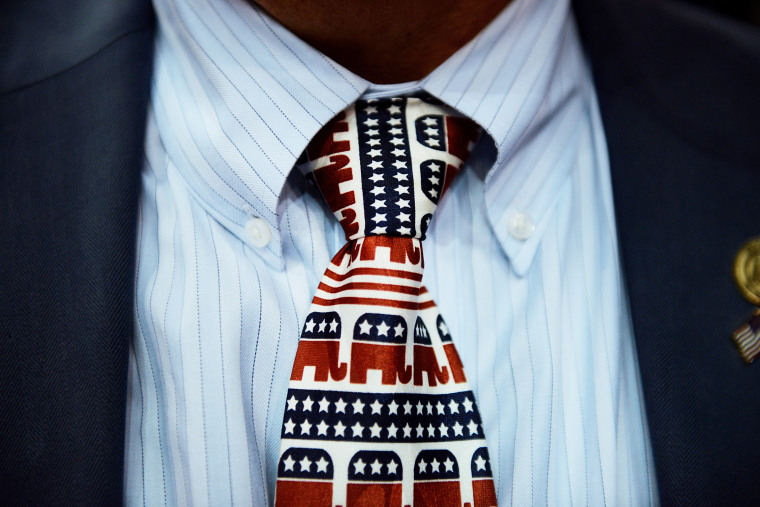Corporate sponsorship of the major parties' national conventions is pretty normal every four years, but in so many ways, 2016 isn't a typical cycle, and as the New York Times reports, corporations are facing different kinds of pressure.
Some of the country's best-known corporations are nervously grappling with what role they should play at the Republican National Convention, given the likely nomination of Donald J. Trump, whose divisive candidacy has alienated many women, African-Americans and Hispanics. An array of activist groups is organizing a campaign to pressure the companies to refuse to sponsor the gathering, which many of the corporations have done for both the Republican and Democratic parties for decades.
Of particular interest was the reporting on Coca-Cola, which has helped sponsor both parties' conventions in recent cycles, and which Republicans hoped to see match its $660,000 sponsorship four years ago. That's apparently not going to happen: the company has donated "only $75,000 to this year's gathering," and Coke has signaled that "it does not plan to provide more."
Color of Change, a civil-rights advocacy group, pressured Coca-Cola, among others, to steer clear of the Republican convention, emphasizing Trump's "hateful and racist rhetoric.''
Walmart, meanwhile, chipped in $150,000 four years ago. This year, at least for now, the retail behemoth hasn't sent the RNC a penny.
The Times' report added, "In addition to Mr. Trump's divisive politics, there is the possibility that protests, or even violence, will become a focus of attention at the convention."
And in case it's not obvious, no corporation wants to see photos of fist fights at a national convention with its logo featured prominently in the background.
I don't want to overstate matters; the Republican convention will no doubt find some corporate sponsors. In fact, a party official told the Times that "corporations and other donors had already pledged $54 million of the $64 million needed for the convention."
But whether others will step up -- and whether corporate sponsors will follow through on those "pledges" -- remains an open question. Every time Donald Trump speaks, there are probably some corporate public-relations executives sending an email to their bosses saying, "Maybe we ought to scale back this year."
Carla Eudy, a longtime Republican fundraising consultant, told the Times, "I have talked to several people at companies who have said, 'I've always gone to the convention, I've always participated at some level, but this year we're not putting it in our budget, we're not going, we're not going to sponsor any of the events going on.'"
Postscript: For several decades, some federal funding was available to the parties to help cover convention costs, but former House Majority Leader Eric Cantor (R-Va.) made de-funding a personal pet project, which he completed in 2014 before losing a primary fight in his district.
